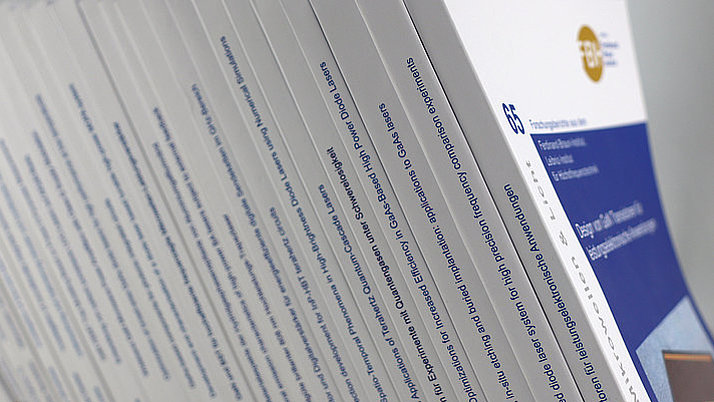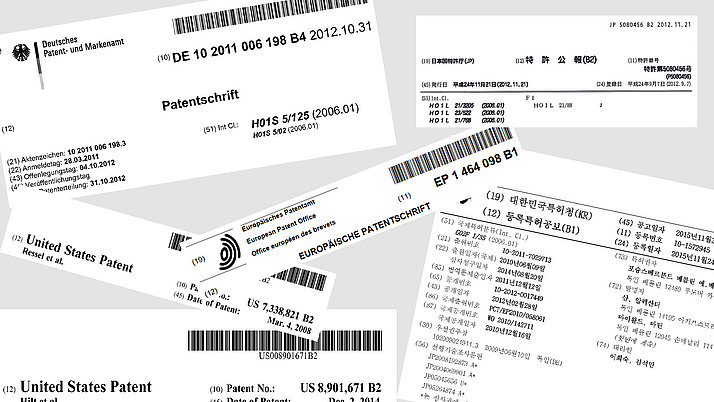Integrated atomic quantum technologies in demanding environments: development and qualification of miniaturized optical setups and integration technologies for UHV and space operation
M. Christ1,2, A. Kassner3, R. Smol1, A. Bawamia1, H. Heine4, W. Herr4, A. Peters2, M.C. Wurz3, E.M. Rasel4, A. Wicht1, M. Krutzik1,2
Published in:
CEAS Space J., vol. 11, no. 4, pp. 561-566 (2019).
Abstract:
Employing quantum sensors in field or in space implies demanding requirements on the used components and integration technologies. Within our work on compact atomic sensors, we develop miniaturized, ultra-stable optical setups for optical cooling and trapping of cold atomic gases on atom chips. Besides challenging demands on alignment precision and thermo mechanical durability, we specifically address ultra-high vacuum (UHV) compatibility of our adhesive integration technology and the assembled optical components. A prototype of an UHV-compatible, crossed beam optical dipole trap at 1064 nm for application within a cold rubidium atomic quantum sensor currently in development at the Joint Lab Integrated Quantum Sensors at Ferdinand-Braun-Institut, Leibniz-Institut für Höchstfrequenztechnik is described. We describe the design and first qualification efforts on adhesive micro-integration technologies. These tests are conducted in application-relevant geometries and material combinations common for micro-integrated optical setups. Adhesive aging will be investigated by thermal cycling and radiation exposure. For vacuum compatibility testing, a versatile UHV testing system for samples up to 65×65mm2 footprint is currently being set up, enabling residual gas analysis, temperature cycling up to 200°C and measurement of total gas rates down to expected 5×10-10mbarl/s at a base pressure of 10-11mbar , exceeding the common ASTM E595 test.
1 Ferdinand-Braun-Institut, Leibniz-Institut für Höchstfrequenztechnik, Gustav-Kirchhoff-Str. :4, 12489 Berlin, Germany
2 Optical Metrology Group-Quantum Sensors and Space Technology, Humboldt-Universität zu Berlin, Newtonstrasse 15, 12489 Berlin, Germany
3 Institute of Micro Production Technology, Leibniz University Hannover, An der Universität 2, 30823 Garbsen, Germany
4 Institute of Quantum Optics, Leibniz University Hannover, Welfengarten 1, 30167 Hannover, Germany
Keywords:
Integrated quantum sensors, Optical dipole trap, Microintegration, Microoptics, Adhesive bonding, UHV qualification.
Copyright © 2019 Springer Nature Switzerland AG. Part of Springer Nature. Personal use of this material is permitted. However, permission to reprint/republish this material for advertising or promotional purposes or for creating new collective works for resale or redistribution to servers or lists, or to reuse any copyrighted component of this work in other works must be obtained from Springer Nature.
Full version in pdf-format.


